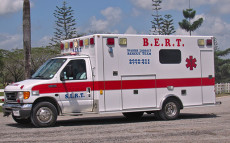- pathfindersAI
- Job Profile
Police and Sheriff's Patrol Officers
Summary
Police and Sheriff's Patrol Officers
What They Do
Police and Sheriff's Patrol Officers are fundamental pillars of public safety and community assurance, working tirelessly to maintain law and order. These dedicated professionals patrol assigned areas, enforce laws, respond to emergency calls, conduct investigations, issue citations, and arrest suspects. They serve as the first line of protection against crime and disorder, upholding the principles of justice by preventing criminal activities, protecting individuals and property, and fostering an environment of trust and security within their communities.
Job Responsibilities
The job responsibilities of Police and Sheriff's Patrol Officers are both diverse and demanding, requiring a multitude of skills and unwavering commitment. Day-to-day tasks include patrolling neighborhoods, investigating suspicious activities, and apprehending suspects. Officers are expected to write detailed reports documenting incidents and investigations, and they often provide testimony in court. Additionally, they partake in community outreach programs to educate the public on safety and crime prevention. Officers must also respond swiftly and decisively to emergency situations, providing immediate assistance and ensuring public safety.
Essential Skills
A successful career as a Police or Sheriff's Patrol Officer hinges on the development and mastery of essential skills. Foremost among these is strong critical thinking and problem-solving ability, enabling officers to analyze situations rapidly and make sound decisions under pressure. Communication skills are equally vital, as officers must effectively interact with a diverse populace, de-escalate tensions, and gather crucial information. Physical fitness is paramount, as the role often demands stamina and strength. Additionally, ethical integrity and empathy are core traits, guaranteeing that officers uphold the law impartially while showing compassion to victims and community members.
Educational Pathways
Aspiring Police and Sheriff's Patrol Officers should pursue a structured educational pathway to acquire the requisite knowledge and skills. Typically, candidates must have a high school diploma or GED at minimum. However, many agencies prefer applicants with postsecondary education in criminal justice, law enforcement, or related fields. Such degrees provide foundational understanding in areas like criminology, criminal law, and ethics, which are beneficial for the role. Furthermore, prospective officers must complete rigorous police academy training, which encompasses both classroom instruction and practical field exercises, ensuring thorough preparedness for the demands of the job.
Career Prospects
The career prospects for Police and Sheriff's Patrol Officers are robust, given the perpetual need for public safety and law enforcement. Employment opportunities are available nationwide, with positions in local, state, and federal law enforcement agencies. Experience and continued education can lead to advancement opportunities, including specialized roles such as detectives, federal agents, or supervisory positions within law enforcement agencies. Additionally, ongoing professional development through training and certifications in areas like forensics, cybercrime, or leadership can enhance career growth and specialization.
Conclusion
In conclusion, a career as a Police or Sheriff's Patrol Officer is both challenging and rewarding, demanding a unique blend of skills, education, and commitment to public service. Officers play an indispensable role in safeguarding communities, fostering societal well-being, and upholding justice. For those passionate about making a meaningful impact and dedicated to the principles of law and order, this career offers a path of enduring fulfillment and professional development. As we look to the future, the need for vigilant and compassionate law enforcement professionals remains paramount, underscoring the vital contribution of Police and Sheriff's Patrol Officers to our collective security.
Video
Compensation
| State | Median Salary | Median Hourly | Positions |
|---|---|---|---|
| AL | 51,030 | 24.53 | 12,770 |
| AK | 90,060 | 43.30 | 1,280 |
| AZ | 76,450 | 36.76 | 12,580 |
| AR | 44,300 | 21.30 | 5,270 |
| CA | 113,460 | 54.55 | 68,010 |
| CO | 88,400 | 42.50 | 9,950 |
| CT | 85,340 | 41.03 | 6,660 |
| DE | 82,410 | 39.62 | 1,730 |
| DC | 80,040 | 38.48 | 5,010 |
| FL | 68,240 | 32.81 | 48,030 |
| GA | 53,730 | 25.83 | 23,370 |
| HI | 88,230 | 42.42 | 2,380 |
| ID | 63,110 | 30.34 | 2,980 |
| IL | 98,430 | 47.32 | 30,550 |
| IN | 66,320 | 31.89 | 12,430 |
| IA | 69,270 | 33.30 | 4,920 |
| KS | 53,170 | 25.56 | 5,840 |
| KY | 50,470 | 24.27 | 7,180 |
| LA | 47,800 | 22.98 | 12,670 |
| ME | 62,280 | 29.94 | 1,990 |
| MD | 75,460 | 36.28 | 9,470 |
| MA | 75,700 | 36.40 | 16,910 |
| MI | 69,240 | 33.29 | 15,850 |
| MN | 84,080 | 40.42 | 9,330 |
| MS | 41,080 | 19.75 | 7,390 |
| MO | 56,480 | 27.16 | 13,070 |
| MT | 63,810 | 30.68 | 2,130 |
| NE | 66,000 | 31.73 | 3,830 |
| NV | 80,730 | 38.81 | 5,820 |
| NH | 63,750 | 30.65 | 2,730 |
| NJ | 91,850 | 44.16 | 21,330 |
| NM | 62,840 | 30.21 | 4,590 |
| NY | 85,460 | 41.09 | 37,910 |
| NC | 52,380 | 25.18 | 21,300 |
| ND | 67,060 | 32.24 | 1,730 |
| OH | 74,300 | 35.72 | 22,320 |
| OK | 53,850 | 25.89 | 8,410 |
| OR | 83,360 | 40.08 | 4,810 |
| PA | 85,390 | 41.05 | 25,680 |
| RI | 76,060 | 36.57 | 1,890 |
| SC | 50,380 | 24.22 | 12,330 |
| SD | 55,390 | 26.63 | 1,860 |
| TN | 52,000 | 25.00 | 12,730 |
| TX | 74,010 | 35.58 | 57,760 |
| UT | 67,540 | 32.47 | 5,320 |
| VT | 65,760 | 31.61 | 880 |
| VA | 61,980 | 29.80 | 17,870 |
| WA | 99,510 | 47.84 | 8,700 |
| WV | 50,560 | 24.31 | 3,440 |
| WI | 77,040 | 37.04 | 12,170 |
| WY | 64,100 | 30.82 | 1,150 |
Similar Occupations
In this area you will find other occupations that are close to the one you were viewing in tasks, knowledge and work environment. If the primary job profile you are viewing isn't quite to your liking, take a look around and see what else is available.
Basic and Premium Accounts have more alternative occupations available than the Free account.

Correctional Officers and Jailers - 33-3012.00
Correctional Officers and Jailers are responsible for overseeing individuals who have been arrested and are awaiting trial or who have been sentenced to serve time in a jail, reformatory, or penitentiary. They maintain the security and safety of the facility, enforce rules and regulations, and prevent disturbances, assaults, and escapes.
-
$53,300/yr
Median Pay -
351,420
Number of Jobs
